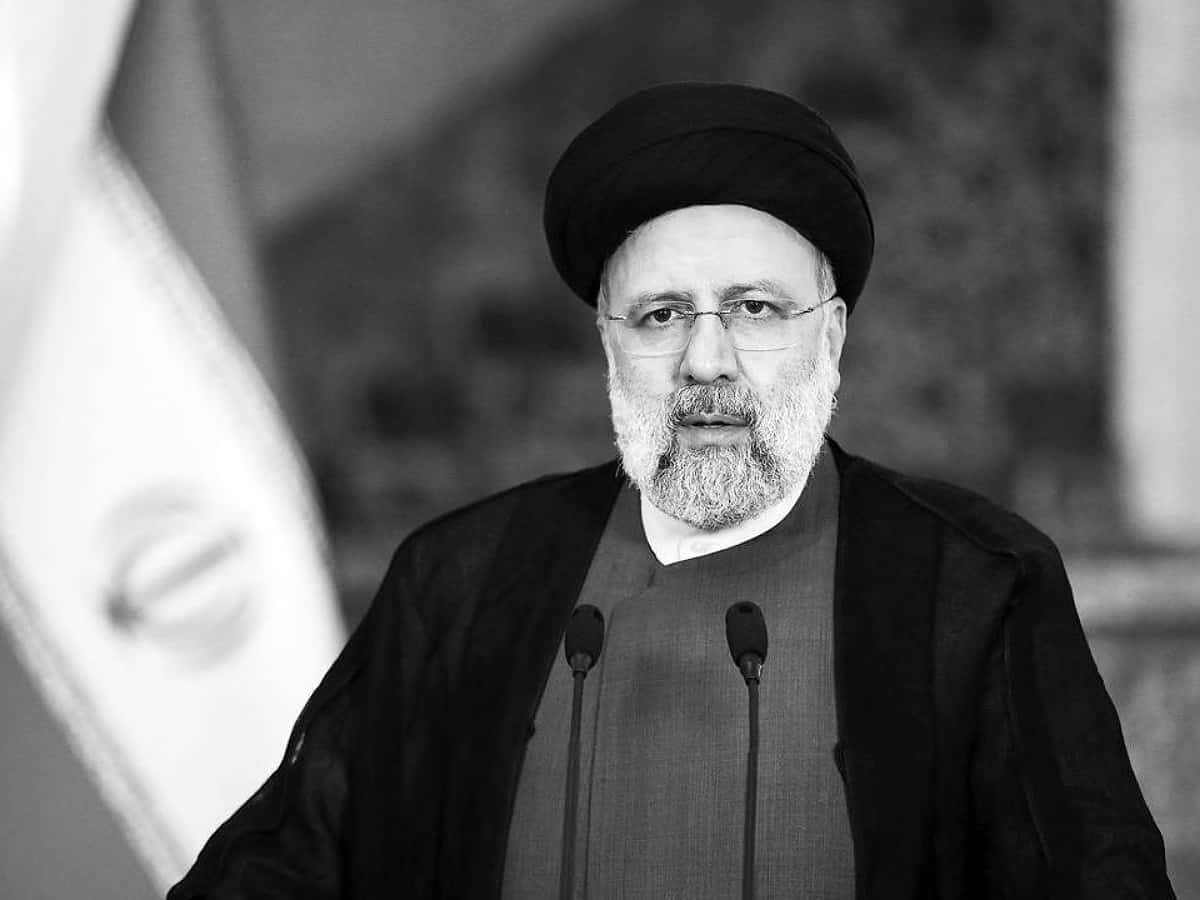
Iran’s President Ebrahim Raisi, along with other senior officials, have been declared dead after the helicopter they were travelling in crashed in a densely mountainous and forested area in East Azerbaijan province on Sunday evening, May 19.
The accident occurred near the city of Julfa, located on the border with Azerbaijan, about 600 kilometers northwest of the Iranian capital, Tehran.
Their bodies were found on Monday morning, May 20, following a long overnight search in dense fog and snow.
The 63-year-old Raisi has long been seen as a potential successor to Iran’s supreme leader, Ayatollah Ali Khamenei.
Here is a look at Raisi’s life
Raisi was born on December 14, 1960 in the city of Mashhad, the capital of Khorasan Province.
He received his basic education in Shiite seminaries, and in 1975 he joined the Islamic Institute in Qom before joining Shahid Motahhari University, from which he obtained a doctorate.
Raisi, appointed Public Prosecutor in Tehran in 1980, was later appointed Deputy Public Prosecutor in 1985 and Public Prosecutor in 1990 by then-Judicial Head Muhammad Yazdi.
In 1983, he married Jamileh Alamolhoda, the daughter of Mashhad’s Friday Prayer Imam Ahmad Alamolhoda.
In 1988, he became a member of the death committee, overseeing political prison executions that led to his unpopularity among the Iranian opposition and prompted US sanctions.
Between 2004 and 2014, Raisi served as First Vice President of the Judicial Authority, a member of the Leadership Experts Council, and Vice President of the Council.
In 2016, Khamenei appointed him as the head of the Astan Quds Razavi Foundation, a large-scale religious endowment institution in Mashhad, Iran.
Raisi loss and victory
Raisi lost the 2017 presidential election to Hassan Rouhani, who won a second term in Iran.
In 2019, he became Iran’s head of the judiciary, prosecuting corruption and investigating politicians. He campaigned against corruption in the 2021 presidential elections, winning the election.
Raisi became Iran’s eighth president after winning the June 2021 elections, which saw the lowest voter turnout in the country’s history.
He assumed the presidency of the country on August 4, 2021.
In his presidency, Raisi has given priority to foreign policy and relations with neighboring countries. He also set his sights on addressing the economic and social crisis, which is mainly due to the sanctions imposed on his country.
He aimed to enhance Iran’s economic situation by bolstering economic ties with neighboring countries, establishing a robust economic system to safeguard its growth from American influence.
Raisi led Iran during 2022 protests over Mahsa Amini‘s death, leading to UN accusations of crimes against humanity in Iran’s crackdown.
Most recently, Raisi supported Hamas after its surprise attack on southern Israel on October 7, 2023, sparking the Gaza Strip war. Iran’s proxies, including Hezbollah and Houthis, have launched attacks against Israeli interests.
On April 13, the Islamic Revolutionary Guard Corps (IRGC) launched drones and missiles at Israel in retaliation for a suspected Israeli airstrike. Raisi praised Iran’s recent attack and pledged a “massive and harsh” response to any Israeli retaliation.
Under Raisi’s leadership, Iran reached a significant agreement with Saudi Arabia, mediated by China, to normalize their relationship after a seven-year gap.
According to the Chairman of the Supreme Political Council of Yemen, praised Raisi was a courageous Muslim leader who remained loyal to the Islamic Ummah’s issues and aimed to achieve their ideals, Mehr News Agency reported.
